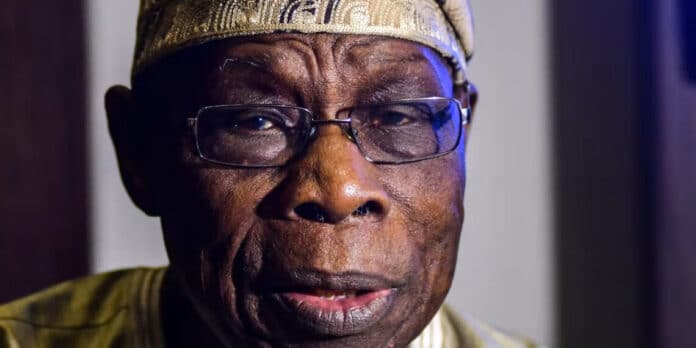Former President Olusegun Obasanjo, one of the major supporters of the Labour Party (LP) alleged that the results of last Saturday’s presidential election have been doctored and manipulated.
The ex-president, in a statement issued on Monday evening, called on President Muhammadu Buhari to review the results collation process as most of the results that are “brought outside BVAS and Server are not true reflection of the will of Nigerians.”
Battabox understands as democracy returns in 1999, Obasanjo became the pioneer of election frauds.
Recall that after the death of Sanni Abacha in 1998, Abdulsalam Abubakar who succeeded him registered three political parties which were People Democratic Party (PDP), Alliance for Democracy (AD) and All Peoples Party (APP).
HAVE YOU READ:
- President Bola Tinubu: Blessing or Curse?
- President Peter Obi: What to Expect
- President Atiku Abubakar: First 100 Days in Office (2023 Predicted)
Elections were held and Abdulsalam Abubakar handed over power to Obasanjo on May 29, 1999, hoping for a decent standard of living, housing, healthcare, education, equality of persons, freedom of expression and other fundamental rights associated with democratic concepts.
The Independent National Electoral Commission (INEC) lacks institutional and administrative autonomy as funds are being released by the Federal Government, hence, it cannot be said to be independent due to weak institutionalisation and political interference.
This makes manipulation very easy by the Presidency. Maurice Iwu, the former Chairman of INEC who was removed by Goodluck Ebele Jonathan in April 2010 after irregularities in the 2007 election worked with Obasanjo to carry out the most discredited elections in Nigeria.
The results of the 1999 presidential election which brought Obasanjo over Olu Falae were challenged as local and international observers including the Transition Monitoring Group, the International Republican Institute and the EU attested to the incredibility.
Prior to the 2003 elections, the electoral bill was reviewed, specifying that the presidential election would come first. The president and members of the National Assembly aimed to secure their re-election because they were scared that if the state governors were elected first, they might use their local power to deny the president and the members of the National Assembly re-election.
Again, PDP emerged as the winner at all levels. The power of incumbency also made PDP had 75 of 109 senatorial seats. INEC as an agent of the presidency won the election for the ruling party. According to the reports of local and international observers, the irregularities in the election include; rigging, violence and buying of votes and ballot stuffing. These abnormalities made people lose their confidence in INEC and posed the question of independence.
READ: Only God can intervene — Netizens react to Ini Edo’s comment on Nigeria elections
In 2007, INEC disqualified candidates on the eve of election. This was the case in Kogi, Anambra and Adamawa states where opposition candidates were excluded. Again, local and international observers condemned the manipulations in the election. Just from the conduct of the election, there were 1,250 election petitions with the presidential election having 8, governorship election had 105, the Senate had 150, House of Representatives had 331 and the state Houses of Assembly had 656. Infact, most of the cases were decided in the highest court and a rerun was mandated in most gubernatorial elections.
Nigerians begin to trust the judiciary after achieving great feat in restoring normalcy to the country through judgment delivered on matters surrounding the 2007 election. Residents in Oyo, Osun, Ondo and Ekiti protested violently against rigging.
SEE: Governor Wike in trouble: Over 200,000 Nigerians sign petition, asks UK, US to cancel his visa
In 2011, elections were marred with political violence, ballot stuffing, underage voting and rigging. After the April 16 presidential election, the supporters of Muhammadu Buhari who was CPC candidate then protested against President Jonathan’s victory and that led to violence in Kano, Zamfara, Bauchi, Borno, Gombe, Niger, Sokoto, Gombe Adamawa, Katsina and Yobe. The protest and violence damaged properties and claimed lives. Police put the total number of deaths from the violence at 520 and thousands of persons were displaced in 12 northern states.
Obasanjo pioneered godfatherism, manipulations and briefcase politics after the 2007 elections that brought Yar’adua to power. Candidates were selected based on loyalty and whomever the party leaders endorse maneuvered their way into offices.
As collation of 2023 elections results continue, the Labour Party and some other opposition parties have withdrawn from the final collation and announcement of results. They accused the electoral commission of not posting results on the INEC web portal, iREV. The parties said this suggests the results being announced may have been tampered with.
A total of 18 candidates are taking part in the presidential election. But only four candidates of the LP, APC, PDP and NNPP, are considered major contenders.





